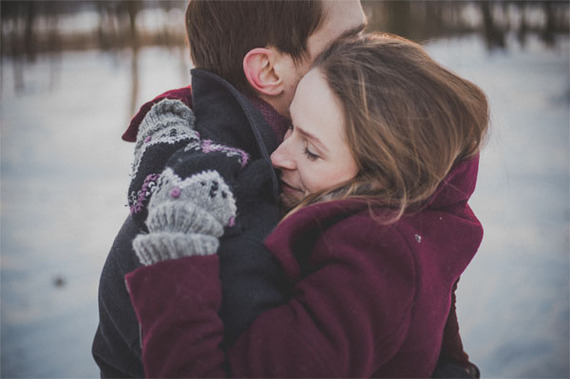Forgiveness is one of those topics that I've historically had a hard time dealing with. Why should we have to forgive someone who was patently in the wrong?
If there are people who have hurt us, why should we ever have to let them off the hook, especially if they show no remorse whatsoever and don't believe that they did anything wrong?
In that kind of situation, it almost seems like we're condoning the actions of those hurtful people by forgiving them, doesn't it?
I think, however, that forgiveness is one of those things that we have to deal with in order to move on to the next chapter of our lives. If we keep holding onto an old hurt, or carrying around a grudge, we are only hurting ourselves, really.
And it's that kind of baggage that colors our perspectives on everything else that happens to us, affecting our lives in negative ways long after the original incident that caused the first pain.
"Holding on to anger is like grasping a hot coal with the intent of throwing it at someone else; you are the one who gets burned." -- Buddha
We are not hurting the other person by refusing to forgive them ( they most likely really don't care one way or the other ), but we are hurting ourselves.
In order to move forward in our own lives, forgiveness is something we need to accept and actually do, or we risk getting stuck in the past, unable to become what we want to become or to achieve what we want to achieve.
Forgiving those who have hurt us does not mean that we are "okay" with what they did, or that we are excusing or condoning their actions. In point of fact, forgiveness doesn't really have anything to do with the ones who hurt us at all.
What forgiveness means is that we are willing to let it go; that we are willing to give ourselves permission to move forward; that we are prepared to say "I am stronger than this" and to act on that assertion.
"When you hold resentment toward another, you are bound to that person or condition by an emotional link that is stronger than steel. Forgiveness is the only way to dissolve that link and get free." -- Catherine Ponder
It means we are ready to cut the bonds of the past that tie us to the ones who cause us pain; that we are ready to live our lives on our own terms; and that we are no longer willing to give away our power and see ourselves as victims.
What it means is freedom.
This can be a very scary concept because by choosing freedom, we are also accepting responsibility for our own lives, which in turn means giving up our excuses; no more "I never got anywhere in life because I had a rotten childhood," for instance.
Sometimes resentment can be comforting in that way; it gives us someone to blame when we don't like our current circumstances. But blame is just a smokescreen and a way of dodging our own responsibilities for charting our own course.
"Forgiveness... is the finishing of old business that allows us to experience the present, free of contamination from the past." -- Joan Borysenko
More importantly, blaming others means giving our power away to them. Forgiving them, on the other hand, is in effect, saying: "You no longer have the power to hurt me" and taking that power back.
In other words, it's all about us -- the ones who choose to forgive -- and really has nothing to do with the people who hurt us.
We need to stop wasting time being bitter about past injustices; time that could be better spent focusing on cultivating our own happiness in the present and learning to enjoy our own lives.
"Never does the human soul appear so strong as when it forgoes revenge, and dares forgive an injury." -- E.H. Chapin
When we resent another or wish for revenge, we become tied to that person.
When we forgive, we are not minimizing our pain or forgetting what happened. But we are moving on, letting go of the past, and choosing a brighter, better future for ourselves.
Nathalie Thompson is the author of fearLESS and Seven-Minute Stress Busters. A dream-building catalyst and motivational expert, she is the head Dream Catcher at VibeShifting.com where she helps people figure out what they really want in life and then shows them how to get it.
